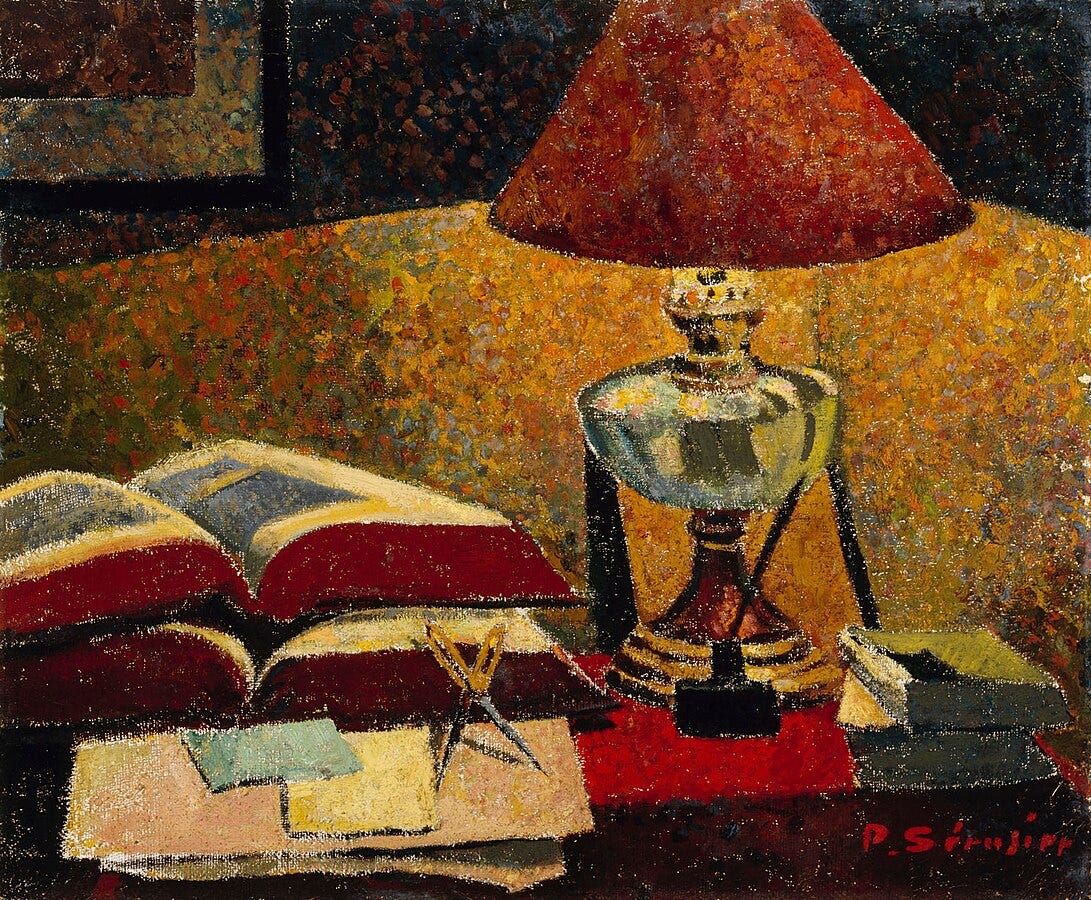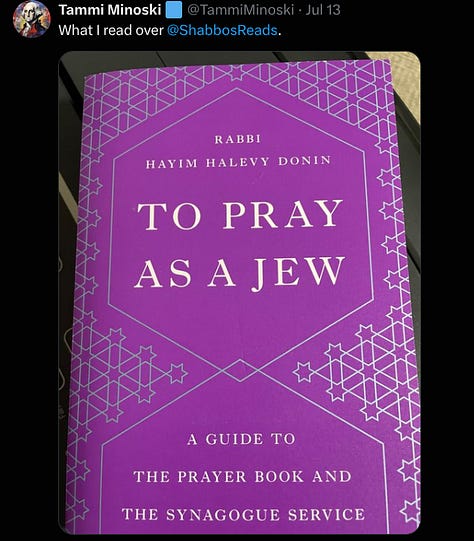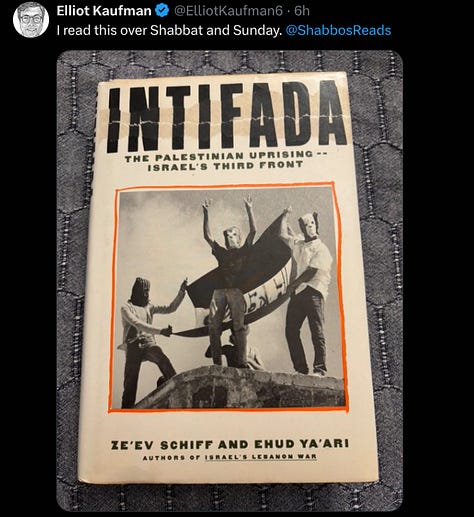How To Remember What You Read
David Bashevkin's Method for Retaining What He Reads

Hello friends! This week’s newsletter is a repost of an old favorite—Arty (who previously ran IRTOS) reviews Rabbi David Bashevkin’s method for remembering what he reads. It’s an inspiring guide for those of us who strive to retain our reading. We’ll be back with a new essay next week, but for now, enjoy!
I leaf through books, I do not study them. What I retain of them is something I no longer recognize as anyone else’s. — Michel de Montaigne
When someone asks me for book recommendations, I get excited. I love figuring out what people like and suggesting the perfect book. But when they follow up with, "What's it about?" Um. I can give you the basic gist, but that’s about it. My memory works in two modes:
Did I like it? Yes or no.
How did it make me feel?
And those are both important. But the nitty-gritty details? Those slip out of my mind faster than my mental to-do list.
I wish I could remember more of what I read and I want to get better at it. Even though I think a book's main message sticks with you, whether you remember all the specifics or not, it does seem a bit pointless to go through a whole book if you can't casually whip out a nugget of wisdom at a party to impress people.
In David Bashevkin’s article, “What Books Mean to Me,” he links to a Twitter thread he posted on his method of remembering what he learns.
I thought it was fascinating and I hope to implement my own version of it soon.
Before he gets to the meat of his system, he begins with a simple tip:
I use book darts. They are these wonderful little markers that help me remember key passages/stories. When I have time I include the key passages I marked off in my thread which also helps me remember. Sharing ideas is a great way to remember them. Here are some of the longer threads I did that used book darts to help me remember the key parts: Scholem’s Sabbatai Sevi: The Mystical Messiah, Creating American Reform Judaism: Life and Times of Isaac Mayer Wise, and The Urge: Our History of Addiction.
Not only does David use book darts to mark key points in the books he reads, but he also shares those passages on Twitter, which helps him remember them even better.
Then he gets to the organization system he uses. He says, “I have a fairly elaborate system for how I organize what I read and learn.” And he’s right. It is quite elaborate.
David has a Word document where he diligently writes down the key passages and ideas from his reading over Shabbos (and probably beyond). He updates it weekly after Shabbos and reviews it twice a year. The document is over 600 pages and 300,000 words! *Mind blown emoji* That’s some serious dedication.
David's ideas and learnings primarily revolve around Jewish themes but this system could work for anyone. Organizing by topic makes it easy to pull up all the relevant ideas when you’re thinking about a topic, especially for writers looking for quotes and supporting evidence for their work.
This is a brilliant idea. How many times have you read an article, essay, or anything else online and then tried to remember where you read it? I have (more than once) spent an hour going through my history trying to find an article I read a month ago because I cannot for the life of me find it. This system makes it simple to have everything you’ve ever read at your fingertips, organized, and easy to access. I love it.
This reminds me of the book Moonwalking with Einstein by Joshua Foer (a guest on the 18Forty podcast!) where he talks about the different methods of memorizing large chunks of information. There he says:
The brain best remembers things that are repeated, rhythmic, rhyming, structured, and above all easily visualized.
Restructuring information to make it easily digestible to the brain is the best way to make sure you’ll remember it.
Every story and every article. Can you imagine being able to scroll through a document where everything you’ve read and want to remember is at your fingertips?
It sounds like a dream. And for most, it will probably stay a dream. This level of dedication is not for everyone, nor should it. But remembering what we’ve read and learned is important. As Foer writes:
If the essence of creativity is linking disparate facts and ideas, then the more facility you have making associations, and the more facts and ideas you have at your disposal, the better you'll be at coming up with new ideas.
David's commitment to meticulously recording everything he reads is impressive. I admire his level of organization, and I hope that I can create a similar system one day soon. But I believe in starting small rather than aiming for perfection right away.
You don't have to document every single thing you read. If you forget something along the way, it doesn't invalidate the entire endeavor. Finding a system that works for you is the most important thing.
Maybe for you, it’s taking pictures of the books and quotes you love and putting them in an album on your phone. Maybe it’s keeping a list in Notes (the app, not Substack Notes), maybe it’s sharing them on Twitter or Instagram (or Substack!), or maybe it’s a system similar to David’s. Whatever you do, the goal is that it should enrich your reading experience and let you hold on to more of what you read.
I hope you found David’s system as interesting as I did.
Do you have a system of remembering and organizing what you read? Let me know by replying to this email or leaving a comment below.
Have a great week and keep reading,
Arty
What did you read over Shabbos?
A selection of shared Shabbos reads
















Despite being a very systems-oriented person, I don't have anything comparable to David's method.
Instead, I bend down the corners of pages where something catches my eye. This also gives me a metric for how thought-provoking I found a book to be: years later, I can tell at a glance. Although I've gone through periods where I highlight key lines (making it a point to do so on Sundays for my Shabbos reading), I actually enjoy NOT being more specific than noting the page. When I revisit a book and see a bent down page, going through the process of trying to remember or figure out what I thought was noteworthy feels like it activates my brain in a different way.
I'm also a fan of book darts, but I reserve those for flagging specific lines and paragraphs that I intend to incorporate into my writing or teaching. If it was something that spoke only to me, I'll bend down the page, but if I want to share it with others, I'll use a book dart. This makes it much easier to write articles about passages in books I read years ago.
Lastly, I TRY to be disciplined about writing book reviews. Nowadays, I post these on Instagram, Facebook, Susbtack, and Whatsapp, but a friend just convinced me to join Goodreads, and I suspect I'll at least give that a shot.
One thing I'd like to try to incorporate is the practice of writing my own index in the back of books I liked, in which I make notes of what I found interesting on all the pages I bent down. Right now, that seems like too much work, but I often regret not having something like that.
I think that's about it!